Appearance
Player Export/Import
The LiveOps Dashboard can be used to export and import players to help during development and testing. This section gives an overview of the feature and how to customize it for your game's data.
Appearance
The LiveOps Dashboard can be used to export and import players to help during development and testing. This section gives an overview of the feature and how to customize it for your game's data.
TaggedSerialized<PlayerModel> and that means the usual compatibility rules apply: Serialized Players from older or newer versions of the game can only be imported to a compatible environment to avoid deserialization errors.Heads up
At the end of the day, player importing is an advanced development feature with lots of potential to cause unintended side effects and bugs. Handle with care!
Open a player in the LiveOps Dashboard and press the "export player" button. In the popover you'll see the text of an Entity Archive that contains the Serialized Player. Hit the "download" button to save this data as a file. You can also copy the contents of that text field by pressing the small copy button located next to the "serialized player data" text.
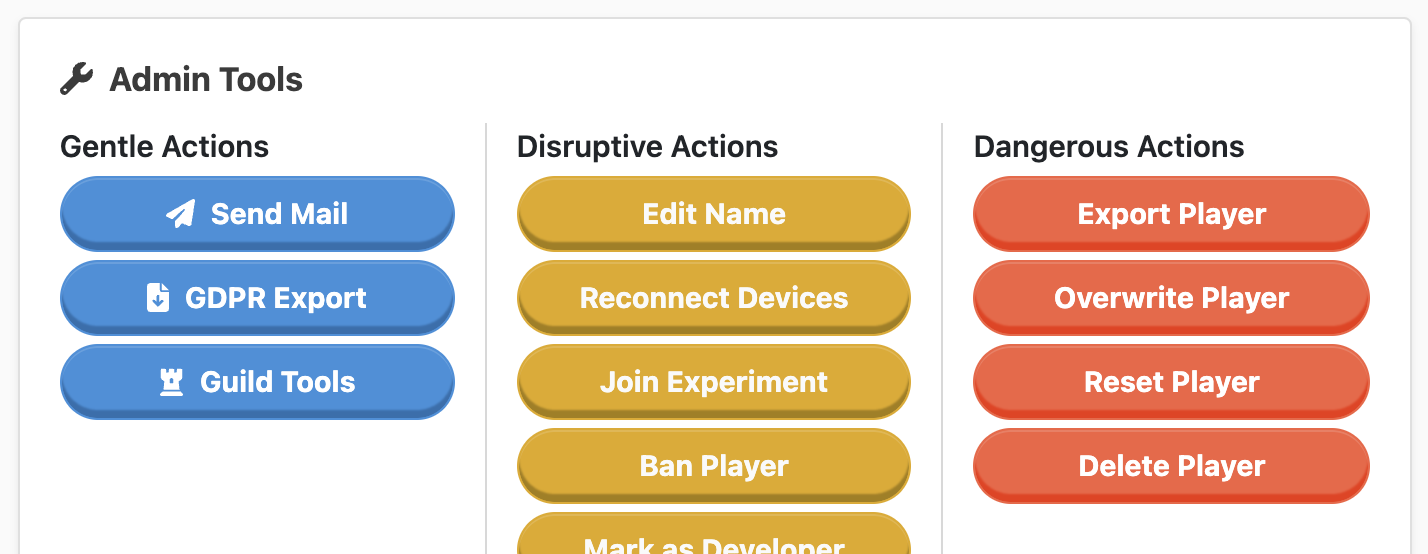
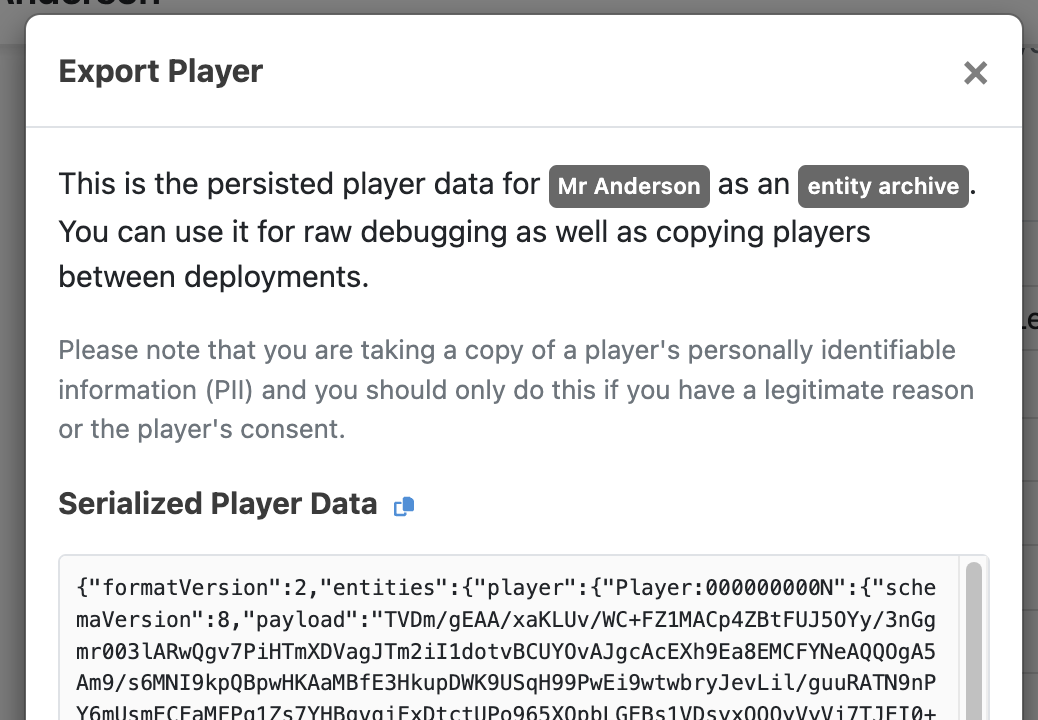
You can import players and other custom entities from one (compatible) game deployment to another by using the "import game entities" feature in the "manage deployment" page.
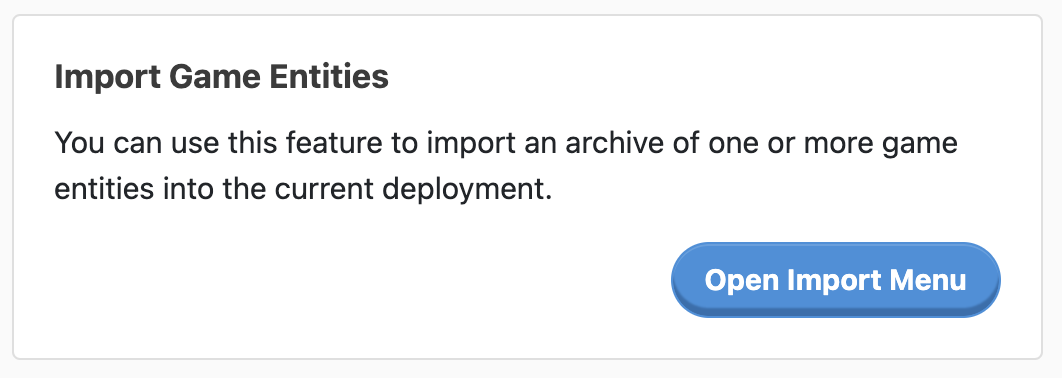
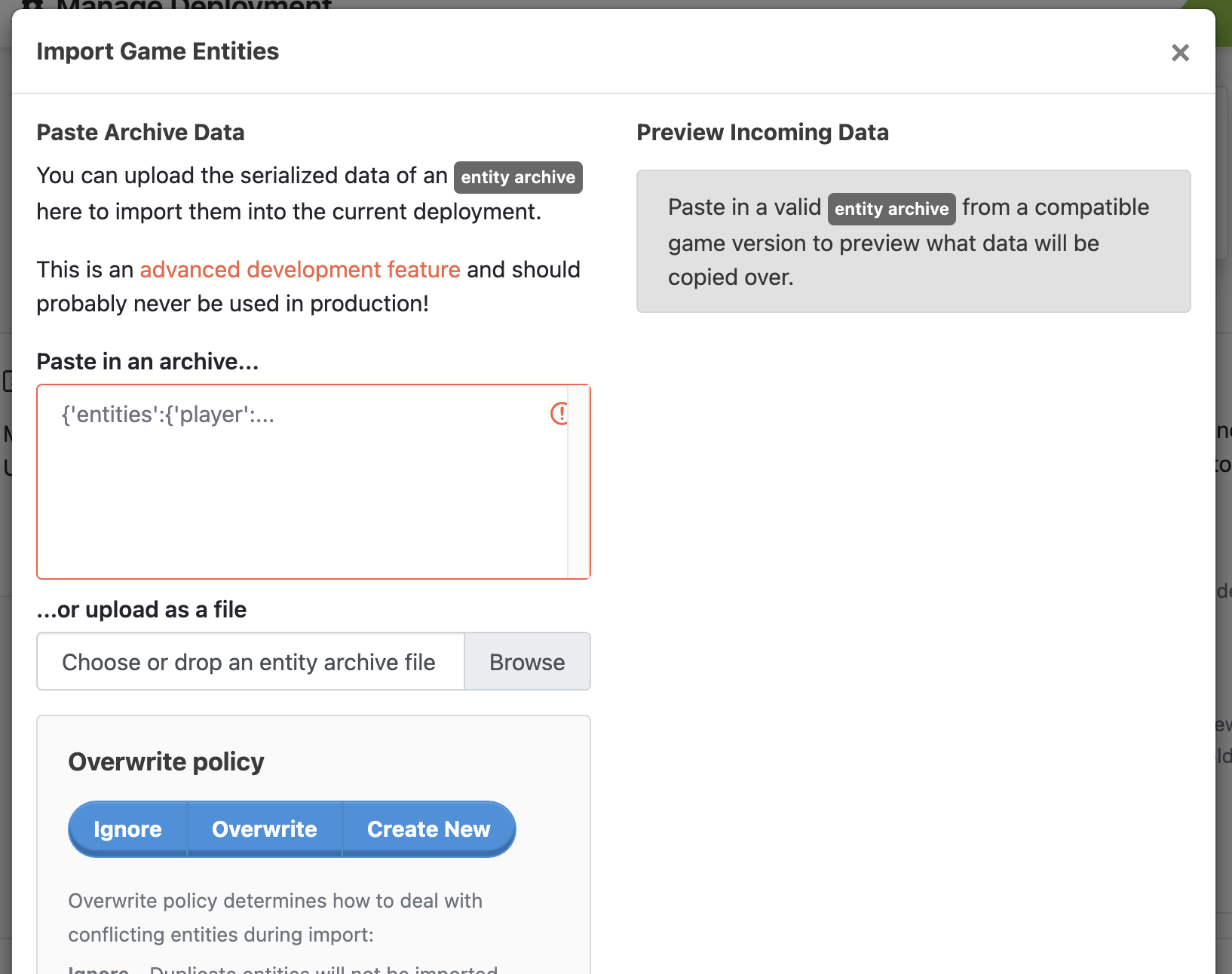
Many times, a good way to debug something is to overwrite your own player account with the game state from someone else. You can use the player overwriting feature to import a Serialized Player to essentially replace your player with the imported one and automatically remap your player ID and authentication methods on top of the imported data.
Pro tip
You could use player overwriting to quickly roll your account to a specific game state to repeatedly test a late-game feature or other complicated scenarios.
To overwrite a player, you can open them in the LiveOps Dashboard (usually an account you are connected to) and press the OVERWRITE PLAYER button to open the import menu. You can drop in an Entity Archive file with one Serialized Player here from a compatible version of the game - or paste it in as text if you would prefer. After setting the archive, you can review a diff between the current and to-be-imported player models to confirm that you are about to what you intended.
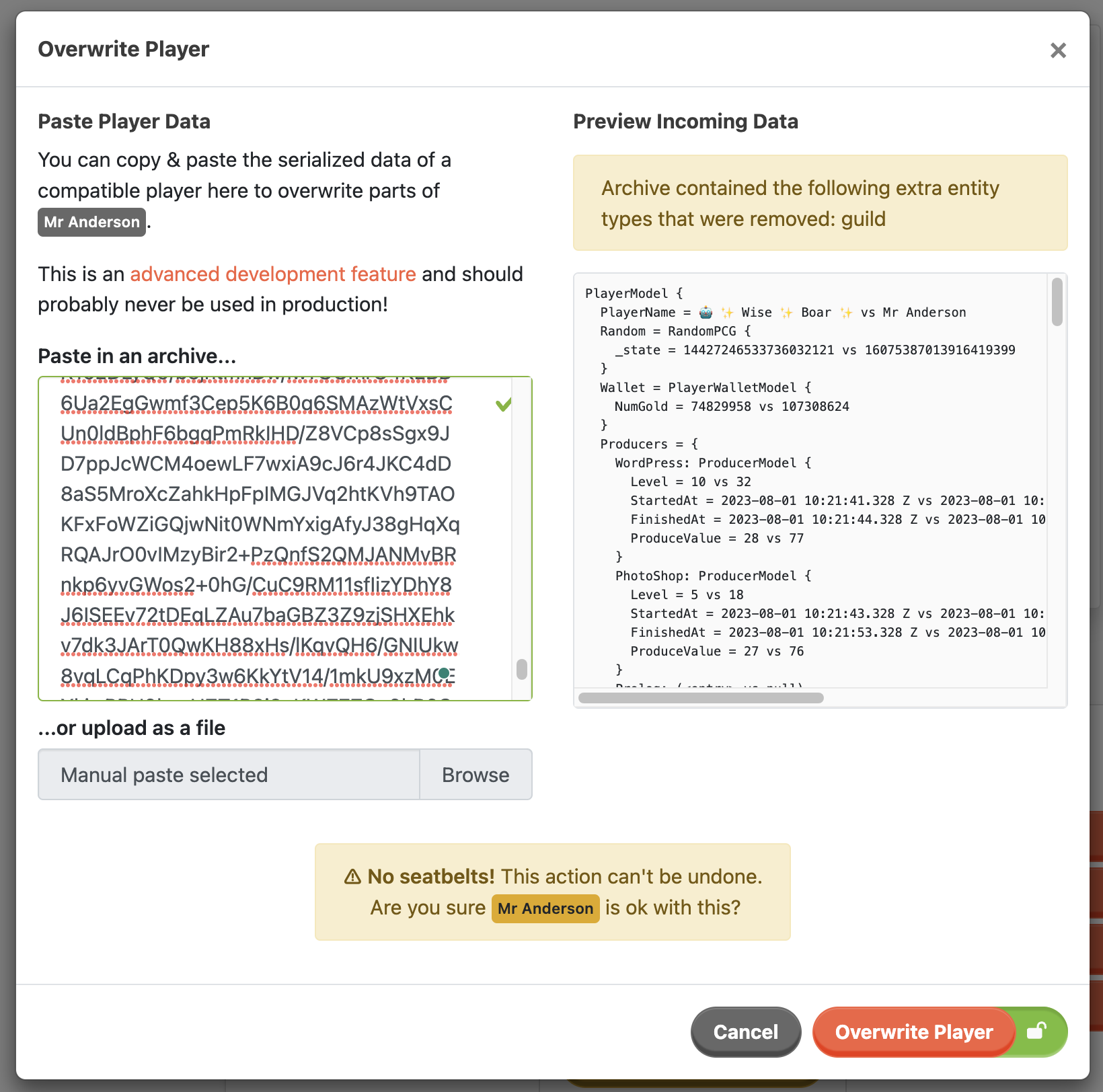
The Entity Archive system only supports player entities by default, but it can be extended to support other, game-specific entity types as well. To do this you will need to implement two handler classes for each additional entity type: one for export and one for import. The Entity Archive code is still in development, so talk to us if you would like to extend it and we can help you out.